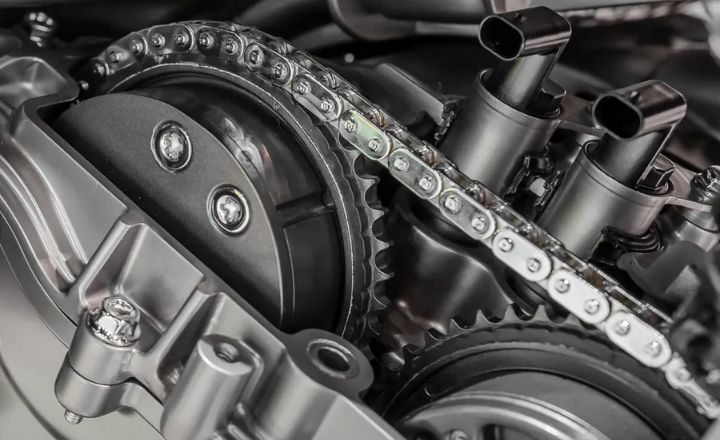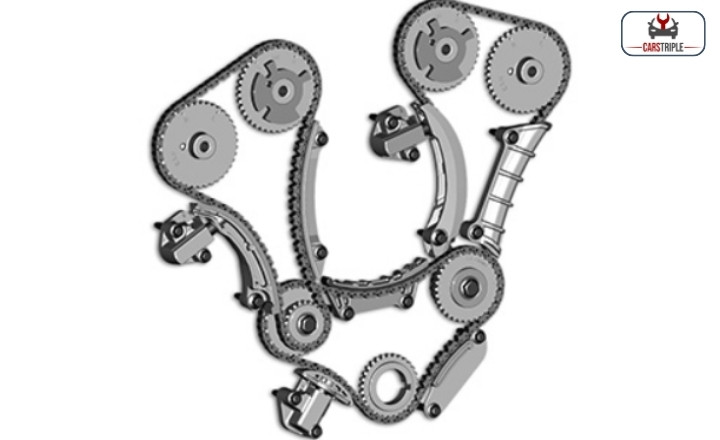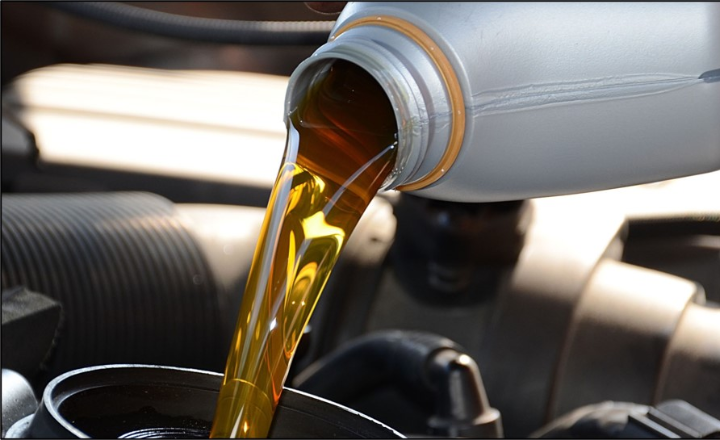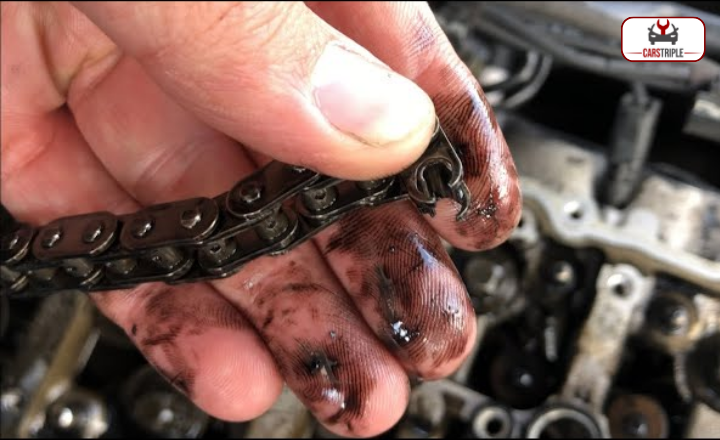You must be aware of potential BMW 1 series timing chain failure symptoms when you purchase it. BMW 1 Series is known for its performance and luxury, but some models have experienced issues with their timing chains.
After studying this article, you’ll find which models in the one series are more likely to have timing chain problems. Here, we will discuss the signs that indicate your car might be facing this issue, such as strange rattling noises or sudden engine failures.
But don’t worry! We won’t leave you hanging. We will also provide simple tips on avoiding these expensive problems and even help you replace your timing chain if necessary.
Which BMW 1 Series Has a Timing Chain?
While exploring the market for a BMW 1 Series, which models come with a timing chain rather than a timing belt? The answer is quite simple: all generations of the BMW 1 Series produced from 2004 onwards have been equipped with a timing chain.
One thing will remain constant if you consider an E87, F20, or F40 generation BMW 1 Series model. All these generations are equipped with a reliable and efficient timing chain system instead of a potentially troublesome timing belt. This feature reduces maintenance costs and enhances the overall driving experience by providing durability and optimal performance throughout the life cycle of your vehicle.
What Is The Replacement Interval Of A BMW Timing Chain?

The replacement interval of a BMW timing chain is often a topic of curiosity for many car owners.
What is the recommended interval for replacing the timing chain?
The recommended replacement interval for a BMW timing chain is typically between 80,000 to 120,000 miles (or 130,000 to 200,000 kilometres). This may seem like a wide range, but it ultimately depends on several factors such as driving conditions and overall vehicle maintenance. If you don’t drive long distances often, consider changing the timing chain every 10 to 15 years.
The average cost of replacing a timing chain is typically between $1,000 and $1,500.
In some cases, timing chains in cars can endure all the damage and use they receive throughout the vehicle’s existence. These chains could break down early depending on how well the car has been taken care of over time.
Which BMW 1 Series Has a Timing Chain Issue?
It is important to note that not all models are affected by this problem, but some have indeed experienced timing chain failures.
BMW 1 Series, particularly the E87 model produced between 2007 and 2011, has gained notoriety for its highest timing chain issues. This concern primarily affects the diesel variants of the lineup, including the 116d, 118d, 120d, and 123d models.

These models have 2.0-litre N47 diesel engines. It has become a popular choice among car buyers for its impressive performance and fuel efficiency. But some recent reports have surfaced about an alarming issue: timing chain problems.
Owners of petrol versions such as the 116i, 118i, and 120i may start experiencing timing chain issues, as the E87 BMW 1 Series ages. This problem is growing more common among these models with increasing age and having the N43 2.0-liter petrol engine.
As we have already discussed, these 1 Series models have a common issue that plagues them. It is often not the timing chain itself that fails, but rather the plastic timing chain guides. These guides tend to become brittle over time, mainly in older models, and can ultimately snap under the strain of regular engine use. This can lead to catastrophic damage within the engine, costing car owners a fortune in repair bills.
Some common symptoms of this issue include a scraping noise from the engine or a red oil pressure warning light that flashes on the dashboard from time to time.
It’s time to seek the help of a certified mechanic, when you notice any unusual behavior or warning signs in your E87 petrol BMW 1 Series. Ignoring or delaying these issues can lead to even more costly repairs.
Symptoms Of Failing The BMW 1 Series Timing Chain

The BMW 1 Series is known for its performance and reliability, but even the best-engineered cars can experience issues. One major problem that BMW 1 series owners may need is a better BMW1 series timing chain.
Signs of a failing timing chain in your BMW 1 series can often develop slowly over time, making them hard to notice until it’s too late. It would help if you always looked for critical symptoms to prevent failure.
Rattling noise:
Rattling noise occurs when the timing chain becomes loose or stretched, usually due to wear and tear over time. It is important not to ignore this noise as it can be a warning sign that the timing chain may snap or skip teeth, leading to catastrophic engine damage.
Rough idle:
Rough idle is a common symptom that BMW 1 Series owners must pay attention to, as it can indicate a potential timing chain failure.
In short, if you need more clarification about the condition of your timing chain, it’s always best to take it to a trusted mechanic.
How Do You Prevent Your BMW 1 Series Timing Chain Issues?
Preventing timing chain issues on your BMW 1 Series is essential for maintaining the longevity and performance of your vehicle. You can avoid these issues with regular maintenance schedules.
Inspecting and replacing worn-out parts such as pensioners, guides, and sprockets can help avoid potential timing chain problems.
Here are a few specific steps you can take to prevent BMW 1 series timing chain problems:
Regular maintenance:
You can avoid any problems in the timing chain by following a routine maintenance schedule. This includes changing the oil and oil filter at recommended intervals and inspecting the timing chain and related components for signs of wear or damage.
Any potential problems can be detected early and dealt with before they become significant issues. It could be possible when you keep up the routine maintenance of your car.
Use high-quality engine oil:

Using high-quality engine oil that meets the manufacturer’s specifications is crucial in ensuring proper lubrication for the timing chain. The right oil will keep all moving parts running smoothly and reduce friction, decreasing the wear and tear on the timing chain.
Avoid using low-quality or synthetic oils that may not provide adequate lubrication, as this could lead to premature failure of the timing chain.
Avoid overloading the engine:
It’s essential to avoid overloading the engine so you don’t get any problems with timing chains in your car. Please don’t push the engine beyond its recommended limits. Over-revving the engine or constantly driving at high speeds can strain the timing chain excessively, ultimately leading to premature wear and potential failure.
You can protect your timing chain and extend its lifespan by staying within the manufacturer’s recommended RPM range.
Avoid exposing the engine to contaminants:
Contaminants such as dirt, dust, and debris can find their way into the engine and cause significant damage over time. These unwanted particles can infiltrate the oil system, leading to excessive wear on the timing chain and its associated components.
In order to prevent this from happening, it’s crucial to keep your engine clean by regularly changing the air filter and ensuring that all seals are intact.
Avoid running the engine low on oil:
Low oil levels in your vehicle can have serious consequences, including potential damage to the timing chain. The timing chain plays a critical role in the proper function of your engine, keeping the camshaft and crankshaft synchronized. However, it can lead to excessive wear and tear when it runs dry due to insufficient lubrication.
This increased friction can ultimately cause the timing chain to break, disrupting the engine’s operation and potentially causing severe damage.
Why Is The Timing Chain Problem So Infamous?
The timing chain in a BMW 1 Series is an essential component that controls the synchronization of the engine’s valves and pistons.
Let’s explore the timing chain’s functionality and identify the problem’s root cause.
Timing Chain: A Quick Overview of How It Works
The timing chain plays a crucial role in the engine, connecting the crankshaft to the camshaft(s). Crankshaft is responsible for converting the up-and-down motion of the pistons into rotational motion. It also controls the timing and duration of valve opening and closing.
Timing chain plays a vital role in the smooth and efficient operation of an engine. Its primary function is to ensure that the camshaft(s) and crankshaft are correctly synchronized, so that the valves open and close at the precise times required during each piston stroke.
This synchronization is crucial for optimal engine performance as it allows for proper combustion and power generation.
It is located inside the engine and covered by a protective timing chain cover, it is responsible for synchronizing the movement of the camshaft and crankshaft. It is also an important component, not spared from wear and tear due to the high speeds at which it operates.
Timing Chains vs. Timing Belts
Both timing chains and timing belts play a crucial role in the functioning of an internal combustion engine, as they are responsible for syncing the rotation of the crankshaft and camshaft(s). They serve the same purpose, but there is a fundamental difference between these two components.
Timing chains are generally made of metal and resemble bicycle chains. They have teeth that interlock with sprockets on the crankshaft and camshaft(s), ensuring precise timing coordination. These chains are known for their durability and longevity, making them a popular choice among car manufacturers. They also require regular maintenance to prevent excessive wear or stretching.
Timing belts are typically made of reinforced rubber or synthetic materials compared to timing chains. Timing belts operate dry like timing chains, which require lubrication from the engine’s oil system. This design makes them smoother and quieter in operation.
The Timing Chain Problem
There are various factors that can contribute to the premature failure of a timing chain. Some of the most common reasons include:
1. Premature Wear and Stretching:
This issue with timing chains is premature wear and stretching. As time passes, these chains can become worn out due to constant exposure to heat, friction, and tension.
This wear can lead to a stretched chain that no longer fits properly on the sprockets it rides on. When this happens, the timing of the engine’s valves can be thrown off, causing poor performance and potential damage.
2. Lack of Lubrication:
Lack of Lubrication can occur with timing chains due to lack of proper lubrication. The chain relies on oil for lubrication to reduce friction and prevent excessive wear. But, if there is not enough oil or if the oil becomes contaminated or dirty, it may not effectively lubricate the chain.
This can lead to increased friction, accelerated wear, and potential failure of the timing chain.
3. Tensioner Failure:
Timing chains are kept under tension by a component called a tensioner. The tensioner ensures that there is always proper tension in the chain so that it remains in place and operates smoothly.
The tensioner may fail when the components have worn or malfunctioned as time goes by. Timing chain may become loose or slacken causing improper engine function or catastrophic failure after this.
4. Contamination:

Contamination refers to any foreign material, such as dirt, dust, or metal shavings, that enters the engine’s oil system and affects the performance of the timing chain.
This can happen for various reasons, including poor maintenance practices or faulty oil filters.
Conclusion:
These problems with BMW 1 Series are a headache for many, often resulting in costly repairs and frustration. But it should be noted that these issues do not mean a death sentence for your beloved car. The good news is that there are solutions available to address the BMW 1 Series timing chain problems.
Maintaining your car according to the recommended service schedule is crucial for its longevity and performance. If you maintain your car according to the service schedule it will reduce the chances of timing chain failure. It is essential to be vigilant and proactive about replacing the timing chain if any signs of wear or damage are detected during routine inspections.
FAQS
How do I know if my BMW timing chain needs replacing?
Is your car giving you trouble starting? Are you hearing strange noises from the front of the engine? Is the check engine light on? Does your engine feel rough or slow? Do you notice vibrations when it’s not moving? Or is it still starting? These could be signs of a timing chain problem.
What happens when the timing chain breaks while driving?
Bad things happen to your engine when a timing chain breaks. It might not even start at all or suddenly stop while you’re driving. If it’s already broken, the engine won’t have enough strength to start working again. If you’re on the road and it breaks, it can cause severe damage to your pistons and valves. The valves might even bend and completely ruin your precious engine.
What is the best oil for a worn timing chain?
If you have a T-GDI engine, like the 3.5L EcoBoost, and tend to have timing chain stretch issues. It is recommended to use high-quality synthetic oil, such as AMSOIL synthetic motor oil, and a good oil filter. This will help prevent wear on the timing chain caused by soot buildup.
